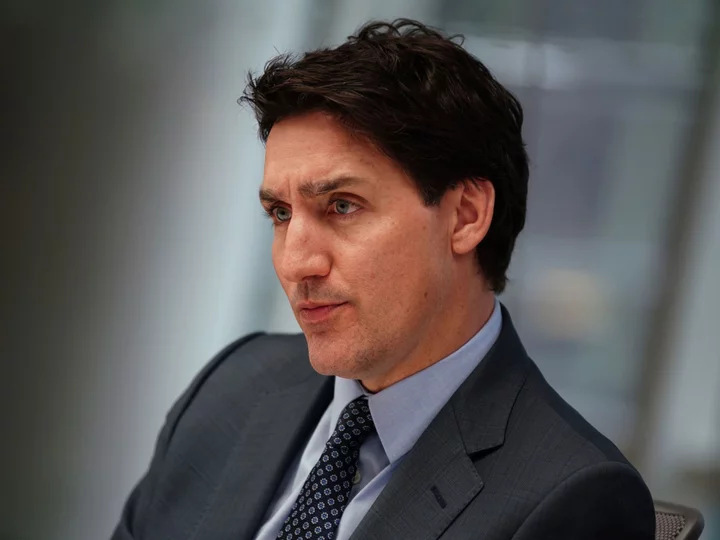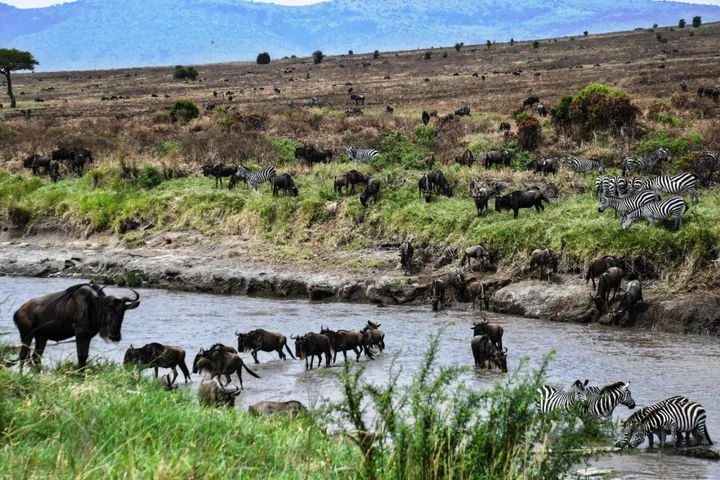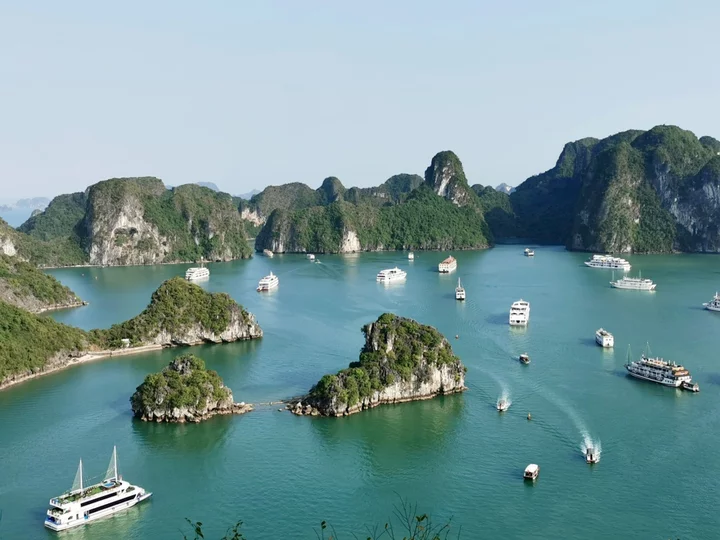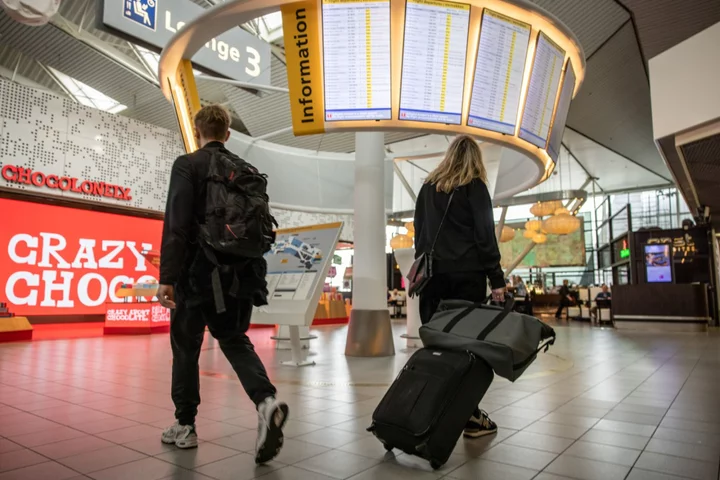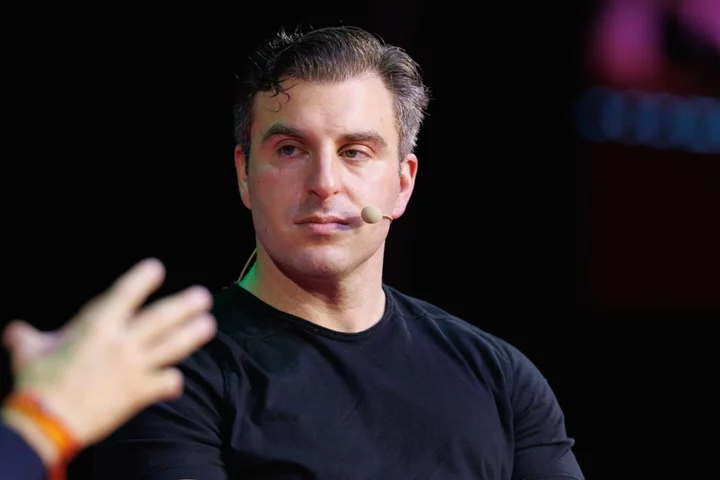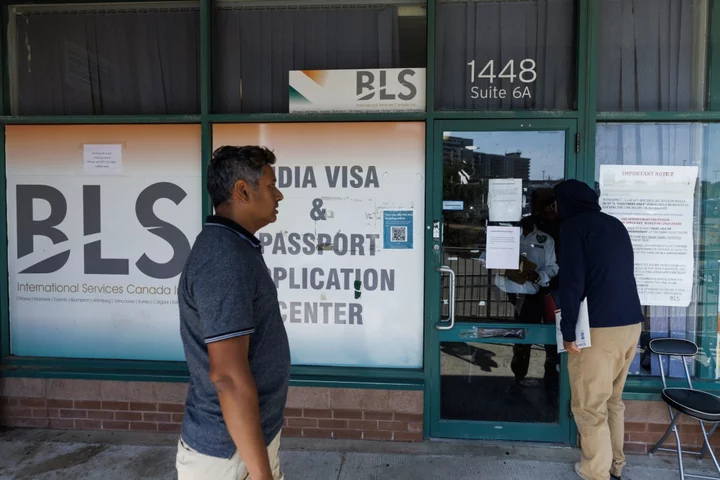As the world reeled in shock over Canadian Prime Minister Justin Trudeau’s charge that India orchestrated the extrajudicial murder of a separatist leader, media outlets in the South Asian country went into attack mode.
Leading dailies questioned the veracity of Canada’s claim that Indian government agents assassinated a prominent Sikh leader on Canadian soil. Many articles criticized Trudeau, in particular, questioning why his government had yet to release evidence — and appearing to side with India’s unequivocal rejection of the allegation.
“For Mr. Trudeau, the priority must be to publicly prove his very serious allegations, or admit he is unable to,” the Hindu newspaper said in an editorial published early Wednesday. “New Delhi must also consider how it wishes to proceed on its ties with Canada.”
The nationalist bent in coverage works for Prime Minster Narendra Modi, who has yet to address Canada’s accusations. Modi is more than likely to win a third term in power when elections come around next year, and his government’s rigid position against secessionist Sikh groups, including the one led by the murdered Canadian citizen, tracks well with most voters in India. The opposition has kept largely silent on the issue.
India’s press is increasingly following the government’s official line — the result of a years-long crackdown on independent media since Modi took office in 2014. The nation has hundreds of newspapers and television news channels serving the world’s biggest democracy, and their commentaries often have an impact on the public mood.
“Not looking to provoke, but...: Justin Trudeau’s fresh message to India,” was one of the headlines flashed by NDTV, a media outlet that used to be relatively critical of Modi’s government. It was taken over last year by a tycoon widely regarded as an ally to the Indian prime minister.
NDTV also published a report detailing Trudeau’s past political missteps. It first references his decision to skip a dinner for leaders at this month’s Group of 20 summit, which saw the US and its allies position India as a strong counterweight to China.
In going public with the murder claims, Trudeau has “tried to divide India-West cooperation, with the real winner being a belligerent China in the Indo-Pacific and against Taiwan,” The Hindustan Times wrote in an analysis.
Other media honed in on an old Canadian travel advisory to the contested Himalayan region of Jammu and Kashmir, reporting that it had been posted after Trudeau went public with his allegations. The Times of India said “the move has further exacerbated the ongoing confrontation between India and Canada.”
The current travel advisory, however, includes health advice and a warning on the restive region that’s been there since July of this year, according to cached website documents. Pierre Cuguen, a spokesman for Global Affairs Canada, said no new risk information was added to the travel advisory page.
Khalistan Connection
Indian news reports honed in on the biography of the murdered Canadian citizen, Hardeep Singh Nijjar, 45, who was slain in June by unknown assailants outside a Sikh temple in British Columbia. Nijjar had openly supported the formation of an independent Sikh state in northwestern India — known as Khalistan — but India and the domestic media have consistently described him as a terrorist.
Read more: How India-Canada Relations Crumbled Amid Sikh Leader’s Murder
“India’s assertions over Canadian safe havens for anti-India, separatist violent Khalistani groups have already been proven by many incidents, beginning from the early 1980s to more recent targeting of Indian diplomats and Indian community centres,” the Hindu newspaper said.
Major newspapers in India carried reports that claimed security officials had repeatedly requested Canada to deport “terrorists and gangsters” linked to pro-Khalistan groups. Yet Trudeau’s government had taken no action on these individuals and groups, the reports said.
India’s government spokesman declined to comment on the news reports.
“It is quite evident that Canada will continue to provide shelter to anti-India Sikh radicals and this episode will further deepen the divide within the Indian diaspora abroad and for that PM Trudeau is to be squarely blamed,” The Hindustan Times said.
--With assistance from Laura Dhillon Kane and Sudhi Ranjan Sen.

